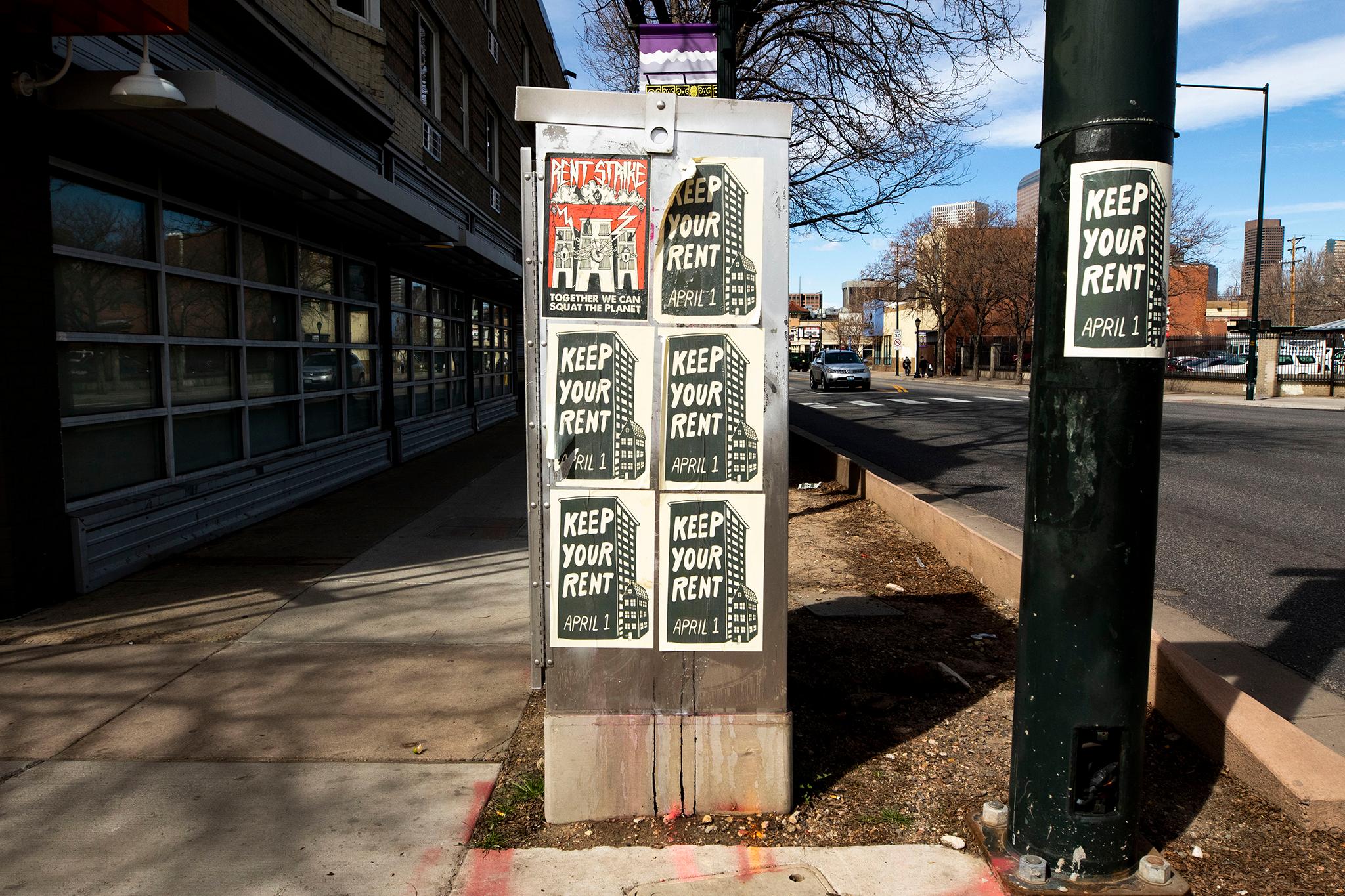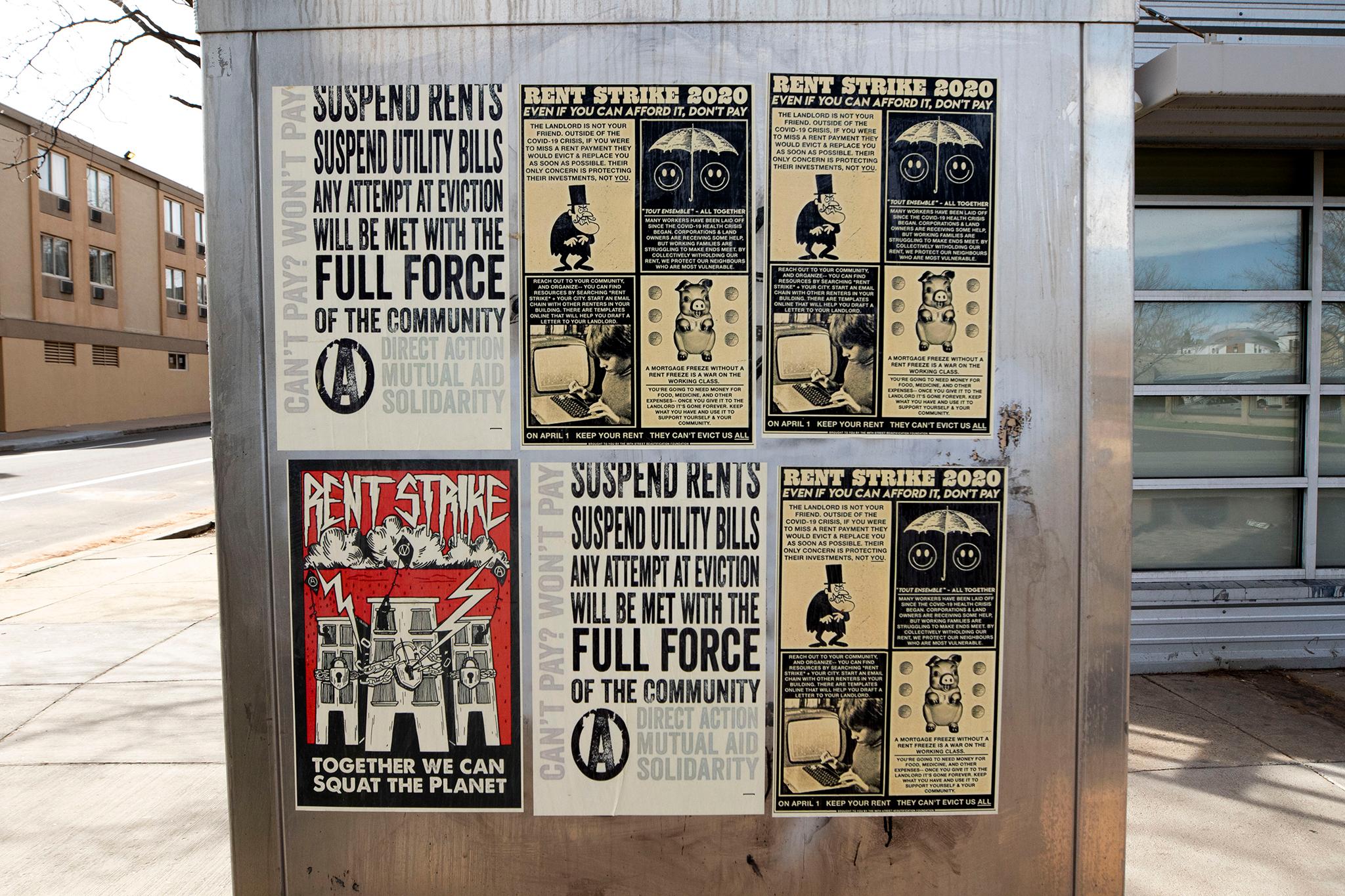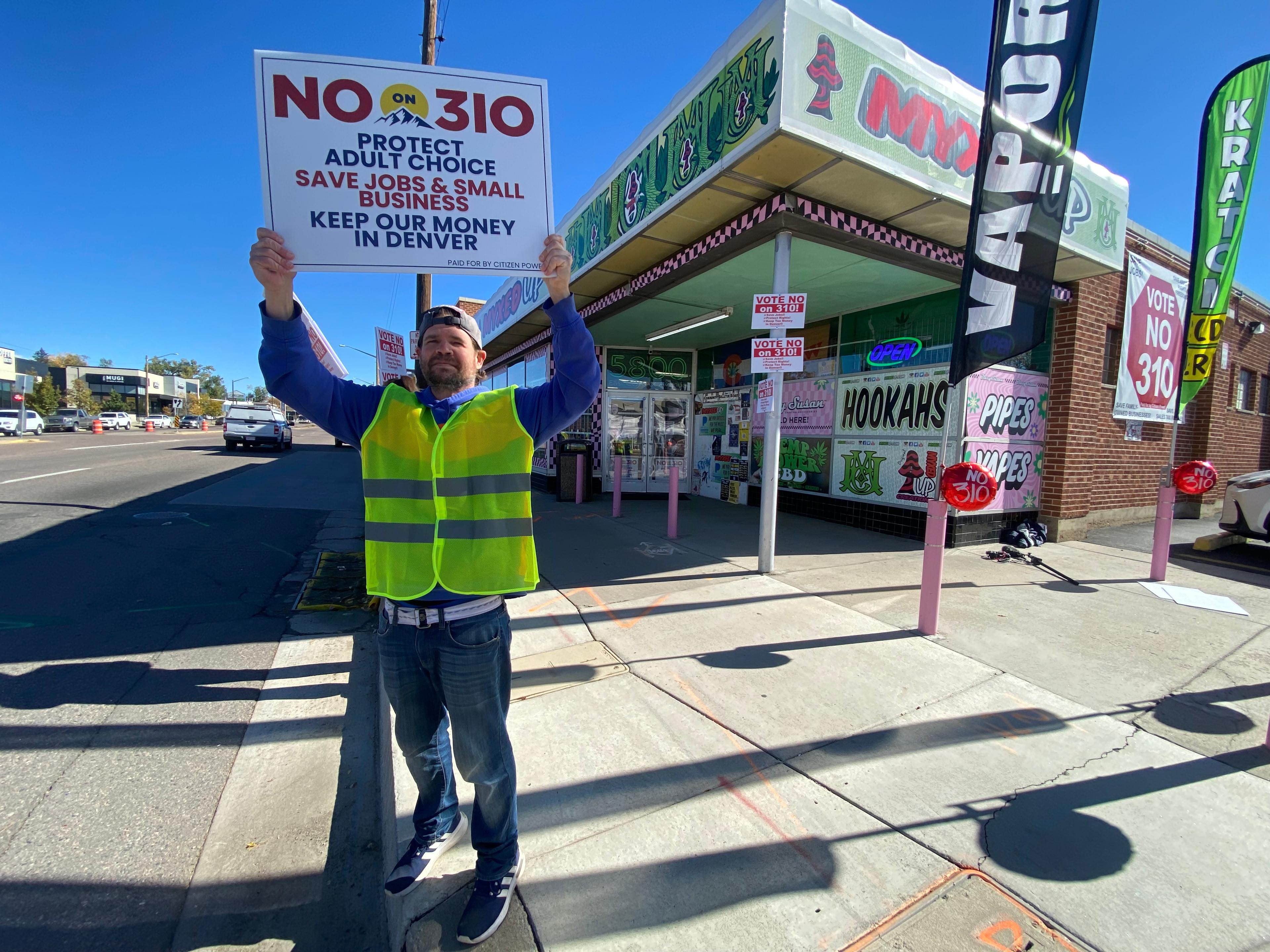The slowdown created by the new coronavirus outbreak cost John Short his job. He wonders when he and so many others will be back at work.
Because of the uncertainty, he's joined calls to be relieved of paying at least one of his expenses.
"If I pay my rent, how am I going to be able to pay the rest of bills, and eat?" the unemployed customer service worker said Wednesday during an online presentation organized by the Democratic Socialists of America.
Short said he's faced economic setbacks before, but "it's never been as bad ... as a whole country, a whole part of society just cut off from making money."
If tenants don't pay, landlords say they won't be able to maintain the housing they provide or pay their mortgages.
If rent stops coming in, "everything kind of grinds to a halt," said Darren Everett, president of BLDG Management, the company that owns Pembrooke on the Green, the 959-unit south Denver complex where Short lives.
"There's been no mortgage relief on any of our properties," Everett said in an interview.
In an executive order aimed at keeping Coloradans housed as the health crisis becomes an economic crisis, Gov. Jared Polis said his action did not relieve "a tenant of the obligation to pay rent."
Polis's order did instruct aides to work with property owners and landlords to stave off evictions of and avoid exacting fees for late or non-payment of rent from tenants affected by the outbreak of coronavirus until at least April 30. The governor's order also called for encouraging financial institutions to halt foreclosures of and allow for a 90-day delay in mortgage payments from residential property owners affected by the coronavirus.
The Colorado Apartment Association has recommended that its member landlords refrain from making people move out under eviction orders through April 30, in line with Polis's order. The association also was advising members to waive late fees through April 30, avoid rent increases and create payment plans for tenants unable to pay rent because of any loss of income linked to the coronavirus outbreak.
On the day of the presentation Short addressed, Colorado Apartment Association Executive Vice President Mark Williams issued a statement "encouraging Colorado residents to pay April rent if they have not been directly affected by COVID-19 (the disease caused by the coronavirus) or a subsequent traumatic event."
"We are conscious of the widespread impact to our community, and understand many Colorado residents have financial losses directly related to COVID-19 and desperately need the financial aid services offered by nonprofits and housing providers," Williams said. "This is a challenging situation for everyone, and we are all in this together. Rent payments remain crucial for the industry to continue operating."
Everett said he had expected the impact of the coronavirus to hit his tenants hard. He said he provides "workforce housing," with rents at the majority of his properties averaging at about $1,200 a month -- $1,000 at Pembrooke on the Green -- in a city where the median rent for a two bedroom was estimated at $1,359 in March by the online real estate company Apartment List. Everett's BLDG Management has 18 properties and 6,500 units.
BLDG property managers were ready to work out plans with tenants that would give them more time to pay rent in small increments and ensure they were not charged late fees, Everett said. He also said he was not pursuing evictions, noting that the courts were closed.
"We've been really trying to work with each resident on their circumstances," Everett said, urging tenants to talk with on-site managers.
Denver lawyer Zach Neumann -- working with colleagues Jason Legg, who often represents low-income tenants in disputes with their landlords, and Jack Regenbogen of the Colorado Center on Law and Policy -- also stressed the importance of communication in a document called "A Colorado Tenant's Guide to COVID-19."
"While it is often uncomfortable, it is important that you communicate your inability to pay to your landlord, in writing, as soon as possible," Neumann wrote, adding it also would be useful to have documentation, such as emails cancelling shifts, linking inability to pay to the crisis.
"Efforts are being made to find a broader public policy solution for renters who cannot pay, but it is unclear where these will land," Neumann wrote, saying proposals have included direct rent support to tenants.
Tenants who don't know when they will be earning again may take little comfort in being told they can pay later and that evictions have been put off but are not ruled out. Short said he had not found managers to be receptive.
"They want their rent and they want their rent on the first (of the month) and that's just how it is," he said.

Juan Marcano, a member of the Aurora City Council, said during the presentation organized by the Democratic Socialists of America that the coronavirus outbreak was affecting "the folks that actually make the economy work."
Marcano sponsored a resolution adopted by his city council on March 23 that asked financial institutions and landlords to be lenient and "consider delaying rents, mortgages, foreclosures, evictions and utility shutoffs to everyone affected by this crisis."
Denver City Councilman Chris Hinds joined Marcano during the presentation and said he would sponsor a resolution similar to Marcano's. Hinds's colleague Candi Cdebaca said during the presentation that she would call for increased funding for Denver's rent relief fund.
Polis's executive order on housing also directed that $3 million from the state's disaster emergency fund be made available to his Department of Local Government Affairs to be used for short-term rental assistance for low-income families suffering economically because of the disease outbreak. DOLA's Division of Housing works with nonprofits across the state to provide rental assistance and other support to prevent evictions.
Everett said BLDG managers were telling tenants about rent relief programs, though he has heard funds are overstretched. Tenants can also come to his managers for information about jobs -- he mentioned BLDG was hiring -- and other resources, he said.
Correction: This version corrects the organizer of Wednesday's presentation. It was organized by the Democratic Socialists of America.













